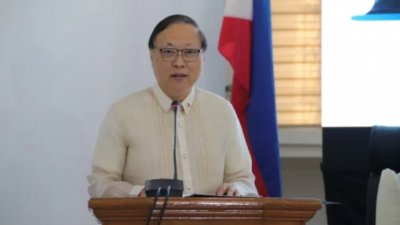Finance officials from the Marcos administration expressed their lack of concern regarding the government’s outstanding debt, even though they acknowledged the possibility of surpassing this year’s target due to the new record high of P14.09 trillion reached in May.
In a statement to reporters last Friday, Finance Secretary Benjamin Diokno emphasized that the appropriate measure for evaluating public debt was not its absolute level, but rather its proportion to economic output.
He stated, “Our debt is at a reasonable level. A debt-to-gross domestic product (GDP) ratio of 60 percent is reasonable by any standard.”
He further explained that their plan was to reduce this ratio to 51 percent by the end of the government’s term, achieved through a combination of lower borrowing and increased GDP.
The current debt-to-GDP ratio for the country stands at 61 percent, surpassing both the 60.4 percent recorded at the end of 2021 and the pre-pandemic figure of 39.6 percent at the end of 2019.
Diokno projected that the ratio would range between 60 and 61 percent by the end of the year, with a target of reducing it to 51 percent by 2028.
Acknowledging that this year’s target of P14.63 trillion might be exceeded, National Treasurer Rosalia de Leon stated that planned repayments would aid in reducing the overall burden. She highlighted the importance of the debt-to-GDP ratio, stating, “As of 2022, general government debt stands at about 54.7 percent of GDP.” She added, “This is also the metric that credit agencies consider.” According to de Leon, the projection for 2023 indicates that the general government debt will be around 54 percent, with a further reduction to 48.5 percent by 2028.
The Treasury Bureau attributed the increase in May’s outstanding debt level of P14.09 trillion (P185.4 billion higher than the previous month) to additional domestic and foreign debt, as well as a weaker peso.
Local borrowings constituted the majority, accounting for 68.0 percent of the total debt.
The value of domestic debt increased by 1.38 percent to P9.59 trillion compared to the end of April, primarily due to the net issuance of government securities amounting to P129.11 billion.
The impact of peso depreciation against the US dollar contributed an additional P1.56 billion to the value of onshore foreign currency-denominated securities.
Year-to-date, domestic debt rose by 4.1 percent or P380.13 billion. External debt, which represents 32 percent of the total outstanding debt, increased to P4.50 trillion, a 1.2 percent or P54.7 billion increase from the previous month.
The rise in external debt was driven by the net availment of external loans amounting to P10.05 billion and the impact of local currency depreciation against the US dollar amounting to P59.70 billion.
However, third-currency adjustments against the US dollar reduced the value of foreign currency debt by P15.02 billion. External debt at the end of December was 7.1 percent higher, amounting to P297.55 billion.
Diokno emphasized that the majority of the country’s debt is domestic, rather than foreign and that more than 75 percent of it has medium- to long-term maturity. He stated that this structure alleviates pressure and contributes to their lack of concern.
The borrowing mix for the country is currently 32 percent external and 68.0 percent domestic.
Diokno also highlighted the importance of how the borrowed money is utilized, stating that it matters whether the debt is invested in public capital projects and productivity-enhancing measures rather than government consumption, such as higher salaries for public sector workers.
Regarding the establishment of the Maharlika Investment Fund, Diokno claimed that it could potentially aid in reducing the debt through supplementary funding for essential government projects. Critics of this measure argue that the country is not in a position to establish a sovereign wealth fund due to its significant trade and budget deficits.
Diokno mentioned that the fund is expected to become operational before the end of this year, with the drafting of its implementing rules and regulations initiated promptly after Congress approved the measure in May. He added that President Ferdinand Marcos Jr. could sign the bill into law within “a week or two.” (ai/mnm)







